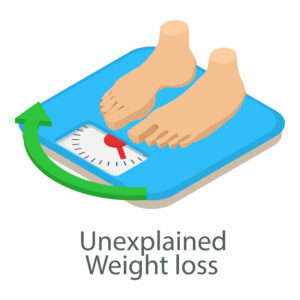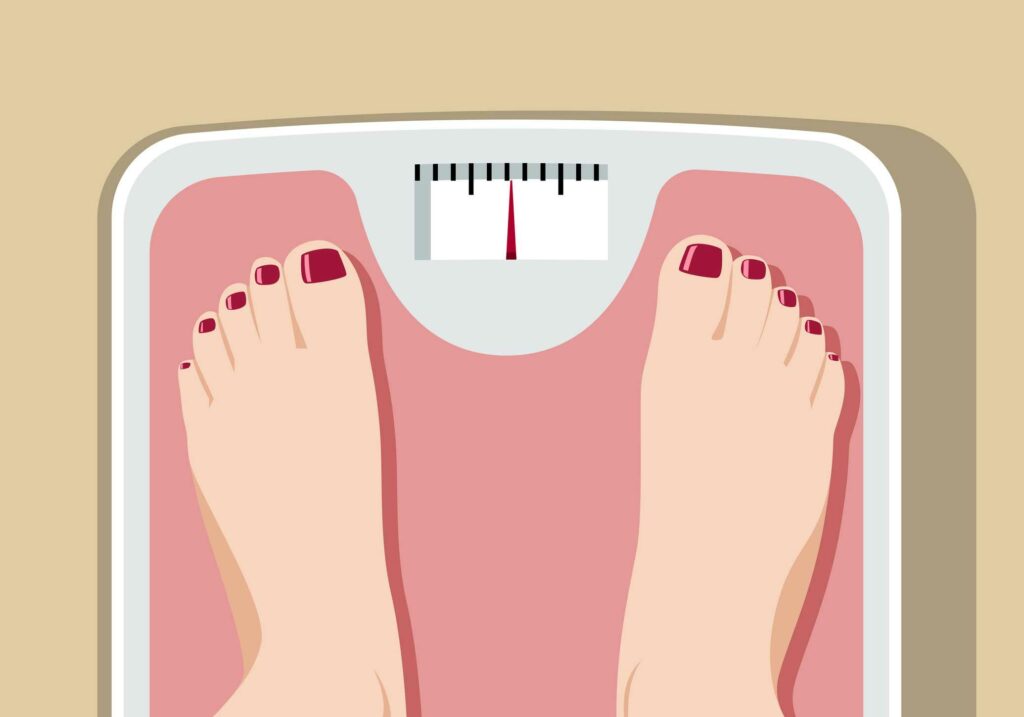Are you struggling to lose weight? If so, you’re not alone. Recent studies have shown that an estimated two-thirds of the adult population in the United States are either overweight or obese. Fortunately, there is help out there for those who are looking to shed some pounds. One such option is unintentional weight loss, which involves reducing your calorie intake without actively trying to do so. In this blog post, we will take a look at what unintentional weight loss is and how it can be beneficial for those looking to achieve their weight loss goals.
Contents
What is Unintentional Weight Loss?

Losing weight can be a struggle for many, and the journey to getting there involves dedication and careful planning. But what if the pounds started dropping off without any warning? Unintentional weight loss can be a frightening experience, as it could potentially signal underlying health issues.
If you are experiencing unintentional weight loss, it is important to see your doctor so they can determine the cause and provide appropriate treatment. Treatments for underlying medical conditions will vary depending on the condition. If stress or depression is causing your weight loss, therapy and/or medication may be recommended. If you have an eating disorder, treatment will focus on helping you develop healthy eating habits and addressing any underlying psychological issues.
Causes of unintentional weight loss
There are many potential causes of unintentional weight loss. Some common causes include:
Lack of Appetite
One of the most common causes of unintentional weight loss is decreased appetite. This can occur due to certain medical conditions or medications, stress or anxiety, depression, and substance abuse. Sometimes lack of appetite can be caused by the body’s natural response to illness or injury.
Malabsorption
Malabsorption is another common cause of unintentional weight loss. This occurs when the body does not absorb enough nutrients from food due to a medical condition such as celiac disease, Crohn’s disease, or cystic fibrosis
Digestive Issues
Certain digestive issues can interfere with the body’s ability to absorb nutrients from food, leading to weight loss. These include celiac disease, Crohn’s disease, irritable bowel syndrome, and food intolerances.
Constant Diarrhea
Chronic diarrhea can also lead to unintended weight loss. This is often caused by certain medical conditions such as Crohn’s disease, irritable bowel syndrome, or celiac disease. It may also be a side effect of certain medications or treatments.
Symptoms of unintentional weight loss
There are many different symptoms of unintentional weight loss. Some people may lose a lot of weight very quickly, while others may only lose a few pounds over time. Some common symptoms of unintentional weight loss include:
Losing more than 10% of your body weight over 6 months or less
One of the most common signs of unintentional weight loss is losing more than 10% of your body weight over 6 months or less. This could be due to medical conditions, changes in diet or lifestyle, or other factors.
Fatigue
Fatigue is another common symptom of unintentional weight loss. People who are losing weight unintentionally may experience feelings of tiredness and exhaustion even after a full night’s sleep.
Loss of Muscle Mass
Another sign of unintentional weight loss is the loss of muscle mass. This can occur even if a person is still eating enough food.
Eating less than normal or skipping meals altogether
When you are losing weight unintentionally, you may find that you are eating less than usual or skipping meals altogether. This can be due to a lack of appetite or difficulty digesting food.
Losing interest in food and/or losing your appetite
An additional symptom of unintentional weight loss is losing interest in food or losing your appetite altogether. This can be caused by certain medications, stress, depression, or other factors.
Difficulty concentrating or problems with memory
Sometimes unintentional weight loss can cause difficulty concentrating or problems with memory. This may be due to nutritional deficiencies caused by not eating enough food, or it could be a side effect of certain medications.
These are just a few of the common signs and symptoms of unintentional weight loss. If any of these apply to you, it is important to speak to your doctor as soon as possible.
How To Diagnose Unintentional Weight Loss?

Diagnosis of unintentional weight loss is typically done with a physical exam, medical history review, and laboratory tests. The doctor will ask about the patient’s recent dietary changes, activity level, stress levels, medications, and any other possible causes of the weight loss.
A complete physical exam will be performed to look for any signs of underlying health issues that may be causing unintentional weight loss. This could include checking blood pressure and heart rate as well as testing reflexes and looking into the mouth and throat area.
Laboratory tests may also be ordered to check for anemia or other nutritional deficiencies that can cause unintentional weight loss. These could include a complete blood count (CBC), electrolytes panel, kidney function test, thyroid function test (TSH), vitamin B12 and folate tests, serum iron level, glucose test, and HIV screen. Depending on the results of these tests, more specialized testing may be needed to rule out any other underlying conditions that could be causing the symptoms.
Treatment for Unintentional Weight Loss
Treatment for unintentional weight loss depends on the underlying cause. It may include dietary changes, medications, and lifestyle modifications.
For people with an underlying medical condition, treatment will focus on that condition first and foremost. For example, if the patient has an infection or other health issue, the doctor will treat the infection. If nutritional deficiencies are causing weight loss, then they would be addressed through diet and supplements as needed.
In some cases, a medication known as megestrol acetate (Megace) may be prescribed to increase appetite and help regain lost weight. Other medications can also help with certain conditions associated with unintentional weight loss such as depression or anxiety.
Other lifestyle modifications can also help promote healthy weight gain. These include regular meals, increasing physical activity levels, and avoiding stimulants and other substances that can cause appetite suppression. Additionally, psychotherapy may be recommended to explore any underlying psychological issues causing weight loss.
Prevention of unintentional weight loss

One of the best ways to prevent unintentional weight loss is to be aware of the signs and symptoms that may indicate that you are losing weight.
Some other ways to prevent unintentional weight loss include:
Eating Healthy
When you have a balanced and nutrient-rich diet, you will feel full longer and be better able to maintain your weight. It is important to eat a variety of foods from all food groups, including fruits, vegetables, lean proteins, whole grains, dairy products, and healthy fats.
Exercising Regularly
Regular physical activity can help strengthen your bones and muscles as well as improve your overall energy levels. It is important to find an exercise routine that works for you and stick with it.
Getting Enough Sleep
Getting enough sleep regularly helps regulate hormones associated with appetite and metabolism, which can help prevent unintended weight loss.
Managing Stress Levels
Chronic stress can lead to an increase in the hormone cortisol, which can disrupt your appetite and cause unwanted weight loss. It is important to take time to relax and manage stress in a healthy way such as through exercise or meditation.
Following Medical Advice
It is important to follow the advice of your doctor when it comes to unintentional weight loss. If you have an underlying medical condition that needs treatment, be sure to talk to your doctor about any changes in your diet or lifestyle that can help reduce its effects.
Conclusion
Unintentional weight loss can be a cause for concern and it is important to determine the underlying cause of this type of weight loss. Common causes include mental health issues, metabolic disorders, medication side effects, and cancer. If you are experiencing unintentional weight loss, it is recommended that you consult your doctor to receive an appropriate diagnosis and treatment plan. Unintentional weight loss can be a difficult process but with the right knowledge and support, individuals can learn how to effectively manage their condition so they can achieve their desired goals.
Consider contacting FitMantra for additional information on nutrition and fitness. You can also get in touch with their nutrition experts through our online nutrition counseling, who can guide you through the process and help you achieve your fitness goals. You can also lose weight with the help of our weight loss program. Download our Fitness app on Android to learn more about us.
